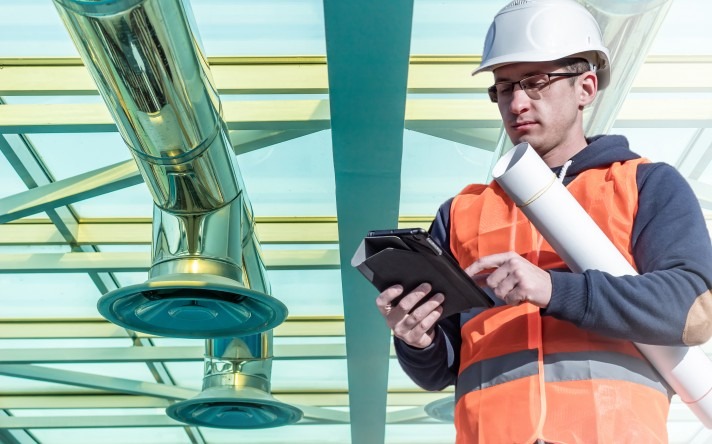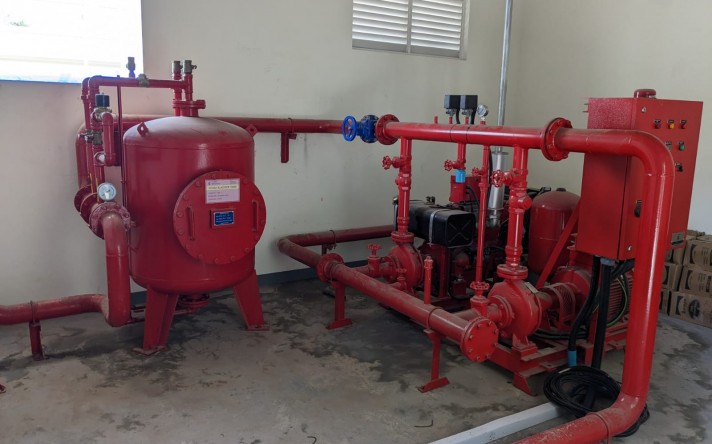Mechanical services primarily encompass Heating, Ventilation, and Air Conditioning (HVAC) systems, which are integral for maintaining a comfortable and controlled indoor environment. Beyond mere temperature regulation, these systems contribute significantly to energy efficiency, indoor air quality, and occupant comfort.
HVAC systems are meticulously designed to cater to the diverse needs of different buildings, ranging from residential spaces to commercial complexes and industrial facilities. They involve the strategic installation of components such as heat pumps, boilers, chillers, air handling units, ductwork, ventilation fans, and more, tailored to the specific requirements of the structure.


One of the key aspects of Mechanical Services in MEP projects lies in their contribution to sustainability and energy efficiency. With a growing emphasis on green building initiatives, MEP engineers strive to design HVAC systems that reduce energy consumption, minimize environmental impact, and maximize operational efficiency. This includes the integration of energy-efficient technologies, utilization of renewable energy sources, and implementation of smart control systems to optimize energy usage.
Furthermore, the design and execution of Mechanical Services within MEP projects necessitate a high degree of coordination and integration. Engineers must work closely with other disciplines like Electrical and Plumbing services to ensure seamless installation and avoid clashes or conflicts between systems. This coordination is critical to optimize spatial requirements, avoid interference between services, and enhance overall system performance.
However, MEP projects, particularly Mechanical Services, are not without their challenges. Engineers often face issues related to space constraints, conflicting system requirements, and the need to meet stringent regulatory standards. Overcoming these challenges requires a deep understanding of the principles of mechanical engineering, innovative problem-solving skills, and an acute awareness of technological advancements in the field.
Moreover, the significance of maintenance and post-construction services in Mechanical Systems cannot be overstated. Regular maintenance is imperative to ensure the longevity and operational efficiency of HVAC systems. Timely inspections, servicing, and upkeep help prevent breakdowns, maintain indoor air quality, and optimize energy consumption.
In conclusion, Mechanical Services play an indispensable role in MEP projects, serving as the backbone that supports the operational efficiency, comfort, and sustainability of buildings. As technology evolves and environmental concerns become more pressing, the role of Mechanical Services will continue to evolve, driving innovation towards more efficient, eco-friendly, and smarter systems that define the buildings of tomorrow.
What does MEP stand for in construction?
MEP stands for Mechanical, Electrical, and Plumbing. It refers to the integrated services required in buildings, encompassing heating, ventilation, air conditioning (HVAC), electrical systems, and plumbing systems.
What is the role of Mechanical services in a building project?
Mechanical services deal with the design, installation, and maintenance of heating, ventilation, and air conditioning (HVAC) systems. They ensure a comfortable and controlled indoor environment by regulating temperature, humidity, and air quality.
What are some common Mechanical systems used in buildings?
Common mechanical systems include:
- HVAC (Heating, Ventilation, and Air Conditioning)
- Heat pumps
- Boilers
- Chillers
- Ductwork
- Ventilation fans
- Air handling units
